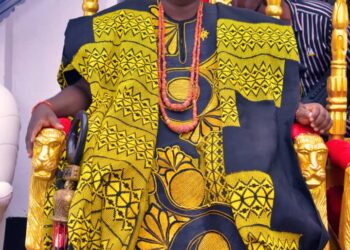By Dayo Ajala
On February 20, 2025, General Ibrahim Babangida (IBB), the former military president of Nigeria, launched his memoir titled “A Journey in Service”. The timing of the release of this book brings renewed focus to one of the most controversial decisions of his presidency; the nullification of the 1993 presidential election in which MKO Abiola was widely believed to have won.

The annulment of the June 12, 1993, election remains a pivotal moment in Nigerian political history, with deep and lasting implications on the country’s journey to democracy. This event shaped Nigeria’s political trajectory in ways that still reverberate today, particularly in terms of its impact on democratic consolidation, civil-military relations, and national unity.
The 1993 presidential election was intended to mark Nigeria’s transition from military rule to civilian governance. General Babangida, who had ruled Nigeria since 1985, had promised to hand over power to a democratically elected government after conducting a free and fair election.
The election pitted two major candidates; MKO Abiola of the Social Democratic Party (SDP) and Bashir Tofa of the National Republican Convention (NRC). Abiola, a wealthy businessman from the southwestern part of Nigeria, was widely regarded as the popular choice and had a broad base of support across ethnic and religious lines.
The election was largely considered peaceful, credible, and transparent, especially compared to previous elections in Nigeria. Abiola was believed to have won the election decisively, with significant support in all regions of the country. However, despite the apparent results, the Babangida administration surprised the nation by nullifying the election on June 23, 1993, citing electoral irregularities and political instability.
The annulment was announced just days after the election, when most people had already accepted Abiola’s victory. General Babangida cited “inconclusive” results and “logistical issues” as reasons, but this explanation was met with widespread skepticism. Many believed the annulment was politically motivated to prevent Abiola from taking office, especially given his immense popularity and broad-based appeal.
The annulment triggered immediate protests, especially in the southwestern region, where Abiola was seen as a hero. The protests were met with harsh repression by the military government, which deepened the political crisis.
The annulment not only fueled nationwide protests but also raised serious questions about the commitment of the military regime to its promises of democratization. It exposed the fragility of the transition process and worsened the relationship between the military and civilian leaders. Nigeria was plunged into uncertainty about its political future.
The annulment of the election by IBB was seen by many as a desperate attempt to protect the interests of the military elite and prevent Abiola’s ascent to power. Several reasons are believed to have influenced the decision.
One, the military was reluctant to relinquish its control over the nation. Despite having promised a return to civilian rule, the military feared the loss of influence in national politics if Abiola, a civilian with considerable political and financial resources, assumed power. Abiola was perceived as a political force that might disrupt the established military influence over governance.
Two, Abiola’s victory was seen as a triumph for the southwestern Yoruba people, particularly because of his affiliation with the region. The military feared that his presidency might lead to the dominance of the Yoruba ethnic group in Nigerian politics, and this was perceived as a threat to the interests of other ethnic groups, especially those from the northern part of the country.
Three, the political elites, including some powerful figures within the military, saw Abiola as a potential challenge to their entrenched power. His wealth, popularity, and ability to unite people across ethnic and religious lines were seen as a potential threat to the status quo.
Four, despite the general consensus that the election was relatively free and fair, the military government raised issues about alleged irregularities. However, this rationale was largely seen as a pretext to legitimize the annulment and maintain control over the political process.
However, this annulment has many implications on Nigerian democracy. The annulment of the June 12 election marked a major setback for Nigeria’s long-awaited transition to civilian rule. It made it clear that the military establishment was unwilling to peacefully surrender political power, despite public promises to do so. The annulment deepened the crisis of legitimacy facing the Babangida regime and led to a prolonged period of military rule, culminating in the dictatorship of General Sani Abacha, from 1993 to 1998. Insightfully, the annulment was followed by a protracted period of military dictatorship under Abacha. Abiola was imprisoned, and many of his supporters were harassed and silenced. Abacha’s regime would only end after his sudden death in 1998.
Furthermore, the annulment sparked widespread protests, strikes, and civil disobedience across the country, led by political leaders, civil society groups, student unions, and labor organizations. The protests eventually gave rise to the National Democratic Coalition (NADECO), an umbrella group of opposition parties and activists that campaigned for the restoration of the June 12 election results and the installation of Abiola as president. Also, mass protests enveloped the entire country. The protests were met with violent repression by the military government, leading to casualties and worsening the divide between the people and the military regime.
The annulment deepened ethnic and regional divides in Nigeria, especially between the Yoruba and Hausa-Fulani ethnic groups. Abiola’s annulment was seen as a direct affront to the southwestern Yoruba people, who had supported him in large numbers. This fostered a climate of mistrust and division, undermining national cohesion. The annulment led to an increase in regional politics and exacerbated political competition along ethnic lines. The military’s actions were perceived as a power grab by the northern elite, which further alienated many southerners and minorities.
The struggle for the restoration of the June 12 election results and the eventual recognition of Abiola as the legitimate winner became a symbol of the Nigerian people’s demand for democracy. Abiola’s prolonged imprisonment and eventual death in 1998 cemented his status as a martyr for Nigerian democracy. His death galvanized the country’s pro-democracy movements and played a role in bringing about the end of military rule. Significantly, in 2018, President Muhammadu Buhari declared June 12 as Democracy Day, in recognition of the significance of the 1993 election and the sacrifices made by Abiola and others in the fight for democracy.
After the eventual death of Abacha, Nigeria transitioned to a civilian government in 1999 with the election of Olusegun Obasanjo. Although this marked the formal return to democratic governance, the country still faced deep-rooted challenges in consolidating democracy, including corruption, electoral malpractices, and military interference in politics. In the years following the annulment, Nigeria embarked on reforms aimed at ensuring free, fair, and transparent elections, though these reforms were often undermined by corruption and systemic weaknesses. The annulment also highlighted the need for stronger civilian control over the military and the necessity for the establishment of independent democratic institutions that would prevent military interference in governance.
The annulment of the election also served as a catalyst for the development of a more active civil society, which began to demand more accountability from elected officials and state institutions. Civil society groups, media, and activist organizations that emerged in the aftermath of June 12 have played significant roles in pushing for stronger democratic practices in the post-military era.
Conclusively, the annulment of MKO Abiola’s 1993 election remains a landmark event in Nigerian political history. It has had far-reaching implications for the country’s democratic journey, contributing to the protracted period of military rule, deepening ethnic divisions, and fueling decades of struggle for true democracy. The legacy of June 12 continues to shape Nigeria’s political consciousness, reminding the nation of its collective aspiration for democracy, justice, and good governance.
Remarkably, as General Babangida’s book is launched, there is renewed reflection on the decisions made during his tenure, particularly the annulment of Abiola’s election. For many Nigerians, the annulment remains a symbol of the struggle against military tyranny and a reminder of the ongoing work to build a fully functional democracy.
You can get every of our news as soon as they drop on WhatsApp ...To get all news updates, Join our WhatsApp Group (Click Here)












